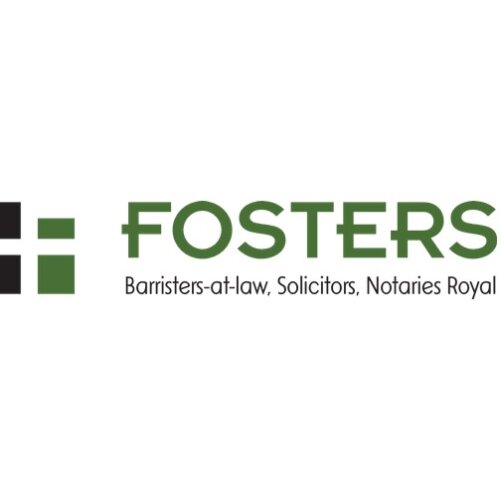Best Transportation Lawyers in Castries
Share your needs with us, get contacted by law firms.
Free. Takes 2 min.
List of the best lawyers in Castries, Saint Lucia
About Transportation Law in Castries, Saint Lucia
Transportation law in Castries, Saint Lucia, encompasses a wide range of legal issues relating to the infrastructure, management, and regulation of different modes of transport. Being a vibrant hub on the island, Castries is central to both land and maritime transportation operations. The bustling port and active road networks form the backbone of the local economy, supporting commerce, tourism, and daily commutes. Transportation law ensures safety, compliance, and smooth operation of these essential sectors, addressing everything from vehicle regulations and roadway safety to maritime and shipping laws.
Why You May Need a Lawyer
Engaging a lawyer specializing in transportation law can be crucial in several situations. For instance, if involved in a traffic accident or violation, understanding liability and your rights can save you from potential penalties or litigation. Businesses may require legal assistance in areas like shipping and logistics to ensure compliance with regulations. Additionally, if your business involves public transportation or taxi services, guidance on licensing and operational regulations can be invaluable. Whether you're navigating personal injury claims, regulatory compliance, or contractual disputes, legal expertise can provide clarity and protect your interests.
Local Laws Overview
The legal framework around transportation in Castries includes various statutes and regulations. Key aspects include road traffic laws addressing vehicle registration, driver licensing, speed limits, and road safety measures. Maritime regulations govern the operations within Castries' bustling port, ensuring safe navigation and shipping practices. Public transportation services must adhere to licensing and operational standards, while businesses involved in the transportation sector are subject to safety and compliance audits. These regulations ensure the safety and financial integrity of both transport providers and users.
Frequently Asked Questions
What should I do if I am involved in a traffic accident in Castries?
If involved in a traffic accident, ensure everyone's safety and contact the authorities immediately to file a report. It's advisable to document the scene and gather information from any witnesses. Consulting with a lawyer can help protect your rights and guide you through any ensuing legal processes.
Are there specific laws for commercial vehicles in Castries?
Yes, commercial vehicles must comply with specific regulations regarding licensing, vehicle maintenance, and driver qualifications. Commercial operators must also adhere to cargo safety and adherence to commercial trucking routes and times.
How are maritime operations regulated in Castries?
Maritime operations in Castries are regulated by laws that focus on the safety and environment of the coastal and port areas. Rules address vessel registration, crew qualifications, and the handling of goods within the port facilities.
Do taxi services require special licenses in Castries?
Yes, taxi operators are required to obtain special licenses to legally provide passenger transportation services. They must comply with operational standards and safety regulations as dictated by local authorities.
How does Saint Lucia handle public transportation permits?
Public transportation operators must apply for permits from the local transportation authority. These permits are subject to periodic reviews to ensure compliance with safety and operational standards.
What are the penalties for traffic violations in Castries?
Penalties for traffic violations can range from fines and points on your driving license to more severe penalties like suspension of driving privileges, depending on the offense.
Are there specific laws regarding the transportation of hazardous materials?
Yes, the transportation of hazardous materials is regulated to ensure public safety and environmental protection. Businesses must comply with specific handling, packaging, and transportation guidelines.
What recourse do I have if I believe I was wrongly fined or penalized for a transportation issue?
If you believe you have been unjustly fined or penalized, you may contest the decision through legal means. Consulting with a lawyer experienced in transportation law can guide you in preparing an appeal.
What are the requirements for driver licensing in Castries?
Driver licensing requires individuals to pass both a written test and a practical driving test. Additional certification is needed for those wishing to drive commercial or public transportation vehicles.
How can businesses ensure compliance with transportation laws?
Businesses can ensure compliance by regularly reviewing and understanding applicable laws, seeking legal counsel, and conducting regular safety and compliance audits of their operations.
Additional Resources
For those seeking further information or assistance with transportation-related matters in Castries, the following resources can be helpful:
- Ministry of Infrastructure, Ports, Energy and Labour - Provides guidelines and updates on transportation policies.
- Royal Saint Lucia Police Force - Manages road safety and traffic regulations enforcement.
- Saint Lucia Air and Sea Ports Authority - Oversees maritime activities and port operations.
- Legal professionals specializing in transportation law - Provide tailored advice and representation.
Next Steps
If you require legal assistance in transportation matters, it is advisable to gather all relevant documentation and details related to your issue. Seek out a lawyer or legal firm with experience in Saint Lucia's transportation laws. Initial consultations can help outline your situation and evaluate potential legal actions. In the meantime, staying informed about local regulations and maintaining compliance can mitigate potential legal disputes in the future.
Lawzana helps you find the best lawyers and law firms in Castries through a curated and pre-screened list of qualified legal professionals. Our platform offers rankings and detailed profiles of attorneys and law firms, allowing you to compare based on practice areas, including Transportation, experience, and client feedback.
Each profile includes a description of the firm's areas of practice, client reviews, team members and partners, year of establishment, spoken languages, office locations, contact information, social media presence, and any published articles or resources. Most firms on our platform speak English and are experienced in both local and international legal matters.
Get a quote from top-rated law firms in Castries, Saint Lucia — quickly, securely, and without unnecessary hassle.
Disclaimer:
The information provided on this page is for general informational purposes only and does not constitute legal advice. While we strive to ensure the accuracy and relevance of the content, legal information may change over time, and interpretations of the law can vary. You should always consult with a qualified legal professional for advice specific to your situation.
We disclaim all liability for actions taken or not taken based on the content of this page. If you believe any information is incorrect or outdated, please contact us, and we will review and update it where appropriate.










